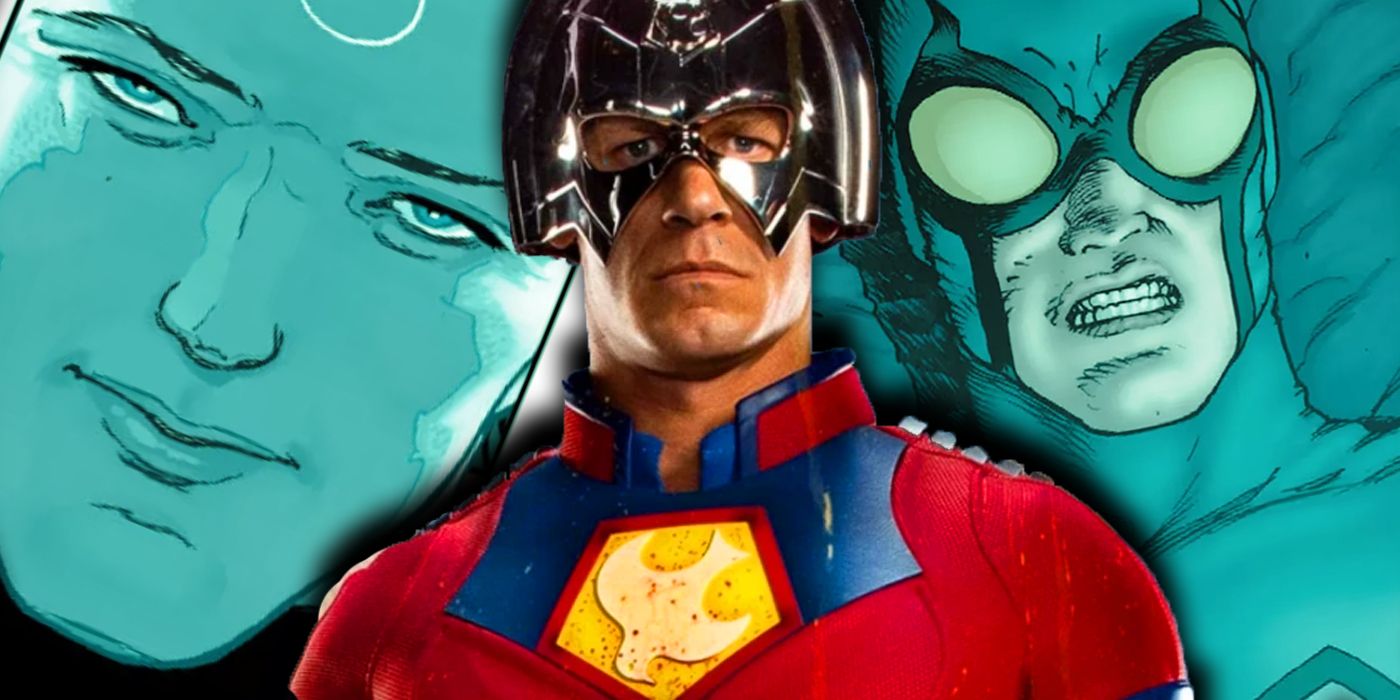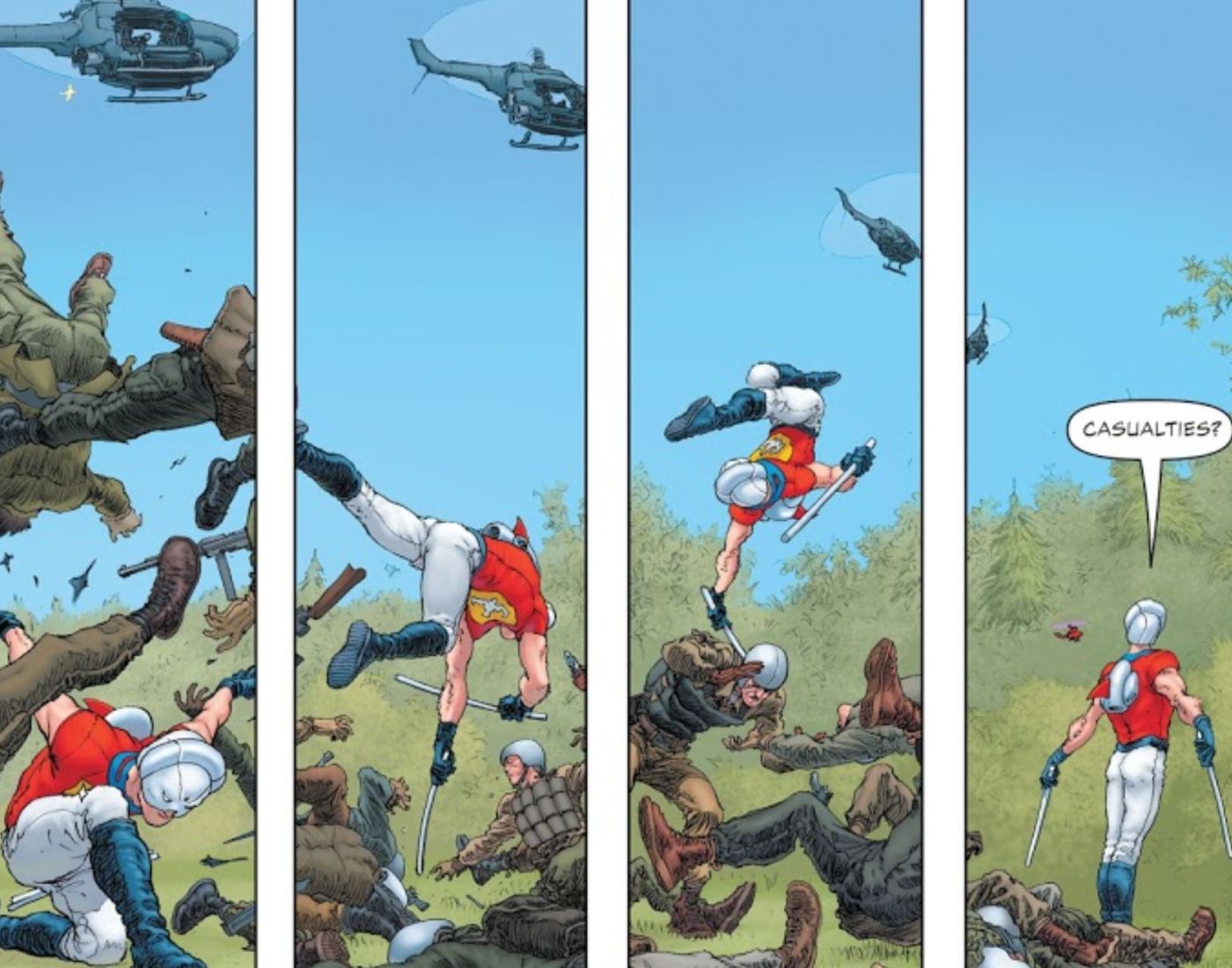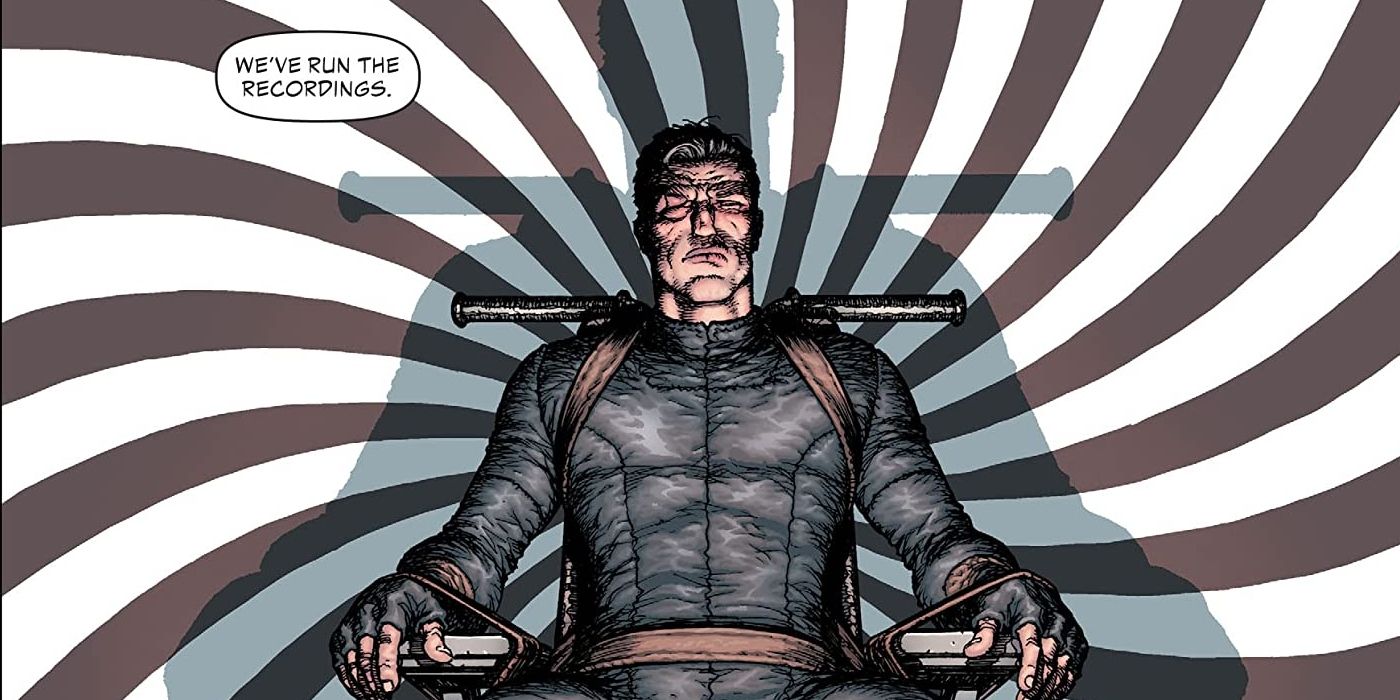In 2014 and 2015, The Multiversity by Grant Morrison and a collection of all-star artists explored multiple worlds across the DC Multiverse, with many representatives from numerous worlds coming together to form an alliance against the infectious dark influence of the Empty Hand and its Gentry. This included introducing a host of unique but perfectly designed takes on many classic characters, such as Peacemaker, one of the main characters of The Suicide Squad.
Each entry in the series focused on a different world and embraced a different tone and inspiration -- with The Multiversity: Pax Americana by Morrison and Frank Quietly serving as an exploration of a Watchmen-esque world, where Peacemaker has a major role in affecting the future of this world -- by killing the President of his reality.
In the Post-Flashpoint DC Multiverse, Earth-4 was home to Pax Americana -- a team of heroes founded by United States President Haley. As the son of a superhero who'd been exposed to a plan to "save the world" by a time-shifting Captain Atom, Haley assembled Pax Americana to handle extreme and unusual threats to the United States. Consisting of Charleston Comics characters and heavily influenced by Alan Moore and Dave Gibbons' landmark Watchmen, Pax Americana was led by the nigh-omniscient Captain Atom and consisted of Blue Beetle, Nightshade, Peacemaker, and Question.
Peacemaker was, in particular, a dangerous agent of the government, single-handily wiping out an entire terrorist group when they attacked then-President George W. Bush in the White House. Peacemaker was just the first of a new breed of soldier, trained to create peace at any cost. This incarnation of Peacemaker -- aka Chris Smith -- was additionally part of a secondary plan, designed to further ensure world peace and arranged by Haley himself: Peacemaker would assassinate Haley, only for the President than to be restored to life by Captain Atom. Peacemaker was committed to this plan -- even as Pax Americana fell apart, with the Question going rogue to further investigate the mysterious murder of a long-dead hero and the military seemingly killing Atom by opening a black hole within his head.
Even though his girlfriend Nora feared that Atom not returning after his apparent death meant that the upcoming assassination of Haley could instead lead to global chaos, Peacemaker was committed to his mission. Years later, the plan went into effect and President Harley was killed in broad daylight by Peacemaker. Promptly captured by the Secret Service for his actions, Peacemaker refused to reveal the full reasoning behind his actions -- with the story ending with the former hero beaten to pulp but still committed to the necessity of his actions, regardless of their brutality.
In many ways, Pax Americana can be seen as Morrison's commentary on Watchmen and the effect it had on comics. The brutality of Pax Americana is contrasted against their sheer potential, and ultimately their plans-within-plans-within-plans seem to topple apart because they failed to prepare for humanity to be complicated and messy. In many ways, this version of Peacemaker is perhaps the closest to the Comedian from Watchmen, who was specifically based on the original incarnation of Peacemaker. He follows through on an apparent murder of a President (as Comedian was hinted to have in the original Watchmen), and his belief that Haley's final death would prove the world has no meaning behind it matches the inherent nihilism of the Comedian.
Pax Americana might be one of DC's most introspective look back at one of comics' most important single stories, and Peacemaker's role in it is a good reminder that despite his obvious motivations and straight-forward role in the universe, Peacemaker's commitments to potentially dubious morals make him an inherently uniquely complex wildcard.



